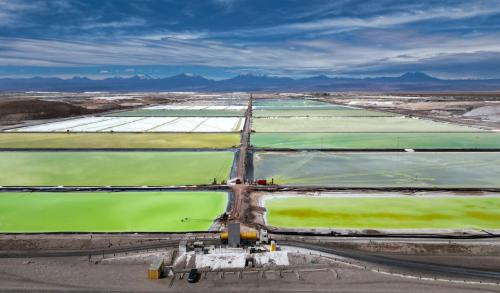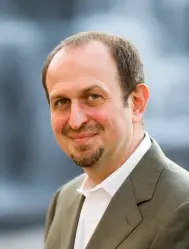

12:00 pm EDT - 2:00 pm EDT
Past Event
12:00 pm - 2:00 pm EDT
Saha 43, Bldg. 63
West Bay Doha
Content from the Brookings Doha Center is now archived. In September 2021, after 14 years of impactful partnership, Brookings and the Brookings Doha Center announced that they were ending their affiliation. The Brookings Doha Center is now the Middle East Council on Global Affairs, a separate public policy institution based in Qatar.
On May 26, 2008, The Brookings Doha Center (BDC), a project of the Saban Center for Middle East Policy at the Brookings Institution, hosted Dr. Brad Setser, Council on Foreign Relations Fellow at the Maurice R. Greenberg Center for Geoeconomic Studies, for a policy luncheon. The discussion focused on the rapid growth of Sovereign Wealth Funds throughout the world and their financial impact on world markets and U.S. policy. Within the Gulf Cooperation Council (GCC) countries, the growth in Sovereign Wealth Funds has been driven by the rapid rise in oil prices from $16 a barrel at the end 2001 to about $130 per barrel in May 2008.
Brookings Doha Center Director, Hady Amr, provided introductory remarks and moderated the policy luncheon which drew participants from the business and banking sector in Qatar, as well as leading academics.
Sovereign Wealth Funds are state-owned funds which invest abroad and, unlike central bank reserves, are free to invest in less liquid and more risky assets to seek better returns. With the growth of wealth in certain parts of the world, these funds have been growing in importance and their large investments in Wall Street firms like Citigroup have brought them into the public eye. The leading funds are held by China, Kuwait, Libya, Norway, Qatar, Russia, Saudi Arabia, Singapore and the UAE, among others. In September 2007, the International Monetary Fund estimated that Sovereign Wealth Funds manage $3 trillion in assets; private investment banks have forecast that they could grow to $12 trillion by 2015.
Dr. Setser approached the subject from three perspectives: The increasing regional and global political significance of the way the Gulf manages its money, the emerging tensions between the investment objective and the exchange rate objective, and finally the meaningful gap between how the U.S. and the GCC manage sovereign wealth – most U.S. money invested in equities is state money or state pension funds. The session also tackled the political implications of the rise in oil prices for the local and global financial markets.
Setser stated that the way GCC manages the surplus money is not only relevant for assessing the future wealth of the Gulf region but also for assessing the performance of the global financial market. According to his estimates, if oil prices remain high at current levels, the GCC countries will have a surplus of $350 billion in 2008 available for investment outside the region, with approximately $150 billion available to the large existing sovereign funds and the remainder in the hands of Saudi Arabian Monetary Agency and the GCC central banks.
Setser noted that in 2007, the foreign assets of the GCC’s governments held in Sovereign Wealth Funds trailed only the foreign assets of China (counting both central bank reserves and sovereign funds) and that the pace at which GCC countries surpluses are growing is tremendous. Setser noted that the gap between the current account surplus of the Gulf and official outflows in the balance of payments data has decreased —implying that more of the surplus is managed by “official” investors (and that the buildup of central bank reserves has offset private outflows).
In the second part of the presentation Setser discussed the tensions between the investment and exchange rate objectives in the region. On one hand, many countries are looking to maximize the returns on their surplus oil revenues, a goal that can be achieved in part through diversifying away from the dollar. On the other hand, any diversification away from the dollar by a large fund risks placing downward pressure on the dollar – and thus on the Gulf’s own exchange rate so long as the main Gulf economies peg to the dollar. Setser noted that his work implies that the growth in the dollar reserves of the GCC central banks, which seems to be due to speculation that the Gulf won’t be able to sustain its dollar peg, tends to offset likely diversification by the major sovereign funds. As a result, in aggregate the Gulf has failed to diversify away from the dollar.
In the third and final part of the presentation, Setser noted that Sovereign Wealth Funds held by countries such as Norway, Alaska, Singapore, and even Russia tend to be more transparent than private funds, while the Gulf’s sovereign funds tend to be less transparent than many private funds. Setser predicted that U.S. policy toward sovereign funds will increasingly be driven by the level of transparency provided by these funds.


David G. Victor, Joisa Saraiva
April 29, 2024

Robin Brooks
April 11, 2024

March 6, 2024